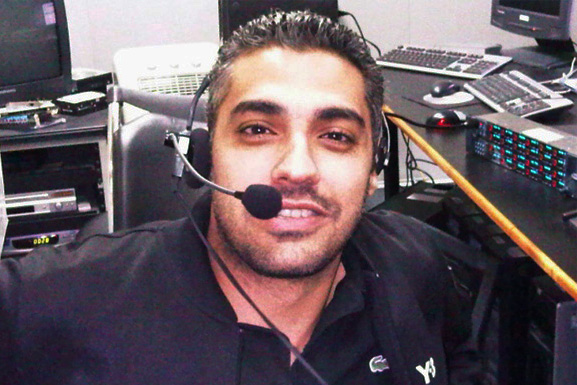Breaking
Canadian journalist on trial in Egypt tries to separate himself from employer
Prosecutors are set to begin closing arguments Monday in the retrial of Mohamed Fahmy on widely-denounced terror charges.
But as the case inches closer to a verdict, the Canadian journalist says he dreads having to pay the price for errors he claims were made by the company he worked for _ Al Jazeera English.
Fahmy was the Cairo bureau chief for the Qatar-based satellite news broadcaster when he and two colleagues were arrested in December 2013.
After the successful appeal of his internationally decried conviction, Fahmy was granted bail in February following more than a year in prison.
The 41-year-old journalist says it’s become clear Al Jazeera failed to protect its employees working in Egypt.
Crucial to his case at this point, he says, is being able to separate himself from the broadcaster, who he is now suing for $100 million in damages.
“I pay the price for the network, it’s not the network that pays,” he told The Canadian Press. “Our job in the courtroom is to differentiate between the responsibilities of the network and us, and prove to the judge…
that we had no clue about a lot of this stuff.”
Al Jazeera is owned by the Qatari government, a fact which plays an important role in Fahmy’s case.
Egypt and Qatar have had tense relations since 2013, when the Egyptian military ousted former Egyptian president Mohamed Morsi. Qatar is a strong backer of Morsi’s now-banned Islamist Muslim Brotherhood group.
Fahmy alleges Al Jazeera used its Egypt-focused Arabic channel, which was banned in Egypt, to promote propaganda of the Muslim Brotherhood.
He also alleges the broadcaster failed to secure proper licenses for its staff and aired reports from Al Jazeera English on its banned Arabic channel — factors he says have contributed significantly to the charges against him.
“I am very worried about the outcome,” he said of his trial. “Unfortunately, I am in that frame of assisting the Muslim Brotherhood, so I’ve got to worry, I can’t let my guard down.”
Fahmy said he complained many times about his staff’s English reports being broadcast on the banned Arabic channel but adds he was dismissed by the network’s executives.
He also said he and his staff never even thought to check if Al Jazeera had secured broadcast licences for its channel in Egypt.
“We are going to explain to the judge that we, three journalists, had no ill intent towards Egypt or malicious plans to breaks the law as the network did,” he said of his defence lawyer’s planned arguments in the coming weeks.
“Journalism is not political activism… At the end of the day there are laws in Egypt and they ignored these laws, challenged them and didn’t give us the choice to accept their way of doing things.”
Al Jazeera has said Fahmy should be targeting his captors, not his employer.
The media company has also said that while all governments have news outlets they don’t like, they don’t use “spurious grounds” to put journalists in jail.
As his trial moves along, Fahmy is also hoping the Canadian government will continue to engage its Egyptian counterparts to push for his freedom.
Fahmy moved to Canada with his family in 1991, living in Montreal and Vancouver for years before eventually moving abroad for work, which included covering stories for the New York Times and CNN.






















